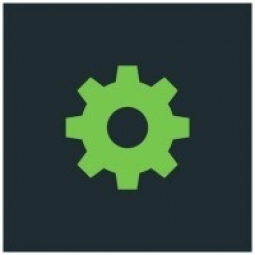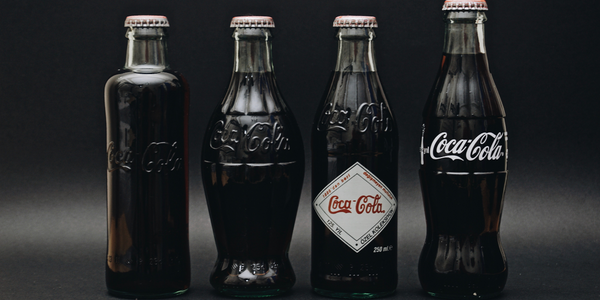Cocktail Courier Ensures Compliant Last-Mile Delivery with ShipStation Dropship Manager, Saving 15% on Shipping

公司规模
Mid-size Company
地区
- America
国家
- United States
产品
- ShipStation Dropship Manager
- BigCommerce
技术栈
- ShipStation
- BigCommerce
- Codal's digital solutions
实施规模
- Enterprise-wide Deployment
影响指标
- Cost Savings
- Customer Satisfaction
- Productivity Improvements
技术
- 功能应用 - 远程监控系统
- 网络与连接 - 网关
适用行业
- 食品与饮料
- 零售
适用功能
- 物流运输
- 商业运营
用例
- 最后一英里交付
- 库存管理
- 供应链可见性(SCV)
服务
- 系统集成
- 软件设计与工程服务
关于客户
Cocktail Courier, founded by Scott Goldman in 2014, is a company that specializes in delivering craft cocktail kits directly to consumers. With a background in the bar industry and a passion for craft cocktails, Goldman aimed to make high-quality cocktails accessible to home consumers. The company experienced a significant boom during the pandemic, with a 20x increase in sales overnight. This rapid growth highlighted the need for an efficient logistics solution to manage the increased volume and ensure compliance with alcohol shipping regulations. Cocktail Courier operates in a heavily regulated industry, where alcohol must be purchased from licensed retailers, and each state has its own rules governing alcohol sales.
挑战
Cocktail Courier faced a significant challenge in managing the logistics of delivering cocktail kits nationwide, especially given the heavily regulated nature of alcohol sales in the U.S. The company experienced a 20x growth in sales overnight during the pandemic, which overwhelmed their existing processes. They needed a shipping solution that could handle high volumes and ensure compliance with state-specific alcohol shipping regulations. The primary challenge was to find a fulfillment solution that would allow third-party retailers to manage last-mile delivery while maintaining compliance with federal and state laws.
解决方案
To address their logistics challenges, Cocktail Courier partnered with Codal, a digital solutions consultancy, to find a suitable tech stack. Codal recommended ShipStation's Dropship Manager add-on, which allows for seamless integration with third-party retailers for last-mile delivery. This solution enabled Cocktail Courier to automate and optimize their logistics processes, ensuring compliance with state-specific alcohol shipping regulations. The Dropship Manager provides a centralized fulfillment solution, allowing Cocktail Courier to manage multiple vendor profiles and maintain visibility over the entire delivery process. By utilizing ShipStation's automation rules and order tags, Cocktail Courier was able to streamline their operations, reduce manual effort, and minimize errors in order fulfillment.
运营影响
数量效益

Case Study missing?
Start adding your own!
Register with your work email and create a new case study profile for your business.
相关案例.

Case Study
The Kellogg Company
Kellogg keeps a close eye on its trade spend, analyzing large volumes of data and running complex simulations to predict which promotional activities will be the most effective. Kellogg needed to decrease the trade spend but its traditional relational database on premises could not keep up with the pace of demand.

Case Study
HEINEKEN Uses the Cloud to Reach 10.5 Million Consumers
For 2012 campaign, the Bond promotion, it planned to launch the campaign at the same time everywhere on the planet. That created unprecedented challenges for HEINEKEN—nowhere more so than in its technology operation. The primary digital content for the campaign was a 100-megabyte movie that had to play flawlessly for millions of viewers worldwide. After all, Bond never fails. No one was going to tolerate a technology failure that might bruise his brand.Previously, HEINEKEN had supported digital media at its outsourced datacenter. But that datacenter lacked the computing resources HEINEKEN needed, and building them—especially to support peak traffic that would total millions of simultaneous hits—would have been both time-consuming and expensive. Nor would it have provided the geographic reach that HEINEKEN needed to minimize latency worldwide.

Case Study
Improving Production Line Efficiency with Ethernet Micro RTU Controller
Moxa was asked to provide a connectivity solution for one of the world's leading cosmetics companies. This multinational corporation, with retail presence in 130 countries, 23 global braches, and over 66,000 employees, sought to improve the efficiency of their production process by migrating from manual monitoring to an automatic productivity monitoring system. The production line was being monitored by ABB Real-TPI, a factory information system that offers data collection and analysis to improve plant efficiency. Due to software limitations, the customer needed an OPC server and a corresponding I/O solution to collect data from additional sensor devices for the Real-TPI system. The goal is to enable the factory information system to more thoroughly collect data from every corner of the production line. This will improve its ability to measure Overall Equipment Effectiveness (OEE) and translate into increased production efficiencies. System Requirements • Instant status updates while still consuming minimal bandwidth to relieve strain on limited factory networks • Interoperable with ABB Real-TPI • Small form factor appropriate for deployment where space is scarce • Remote software management and configuration to simplify operations

Case Study
Energy Management System at Sugar Industry
The company wanted to use the information from the system to claim under the renewable energy certificate scheme. The benefit to the company under the renewable energy certificates is Rs 75 million a year. To enable the above, an end-to-end solution for load monitoring, consumption monitoring, online data monitoring, automatic meter data acquisition which can be exported to SAP and other applications is required.

Case Study
Coca Cola Swaziland Conco Case Study
Coco Cola Swaziland, South Africa would like to find a solution that would enable the following results: - Reduce energy consumption by 20% in one year. - Formulate a series of strategic initiatives that would enlist the commitment of corporate management and create employee awareness while helping meet departmental targets and investing in tools that assist with energy management. - Formulate a series of tactical initiatives that would optimize energy usage on the shop floor. These would include charging forklifts and running cold rooms only during off-peak periods, running the dust extractors only during working hours and basing lights and air-conditioning on someone’s presence. - Increase visibility into the factory and other processes. - Enable limited, non-intrusive control functions for certain processes.







